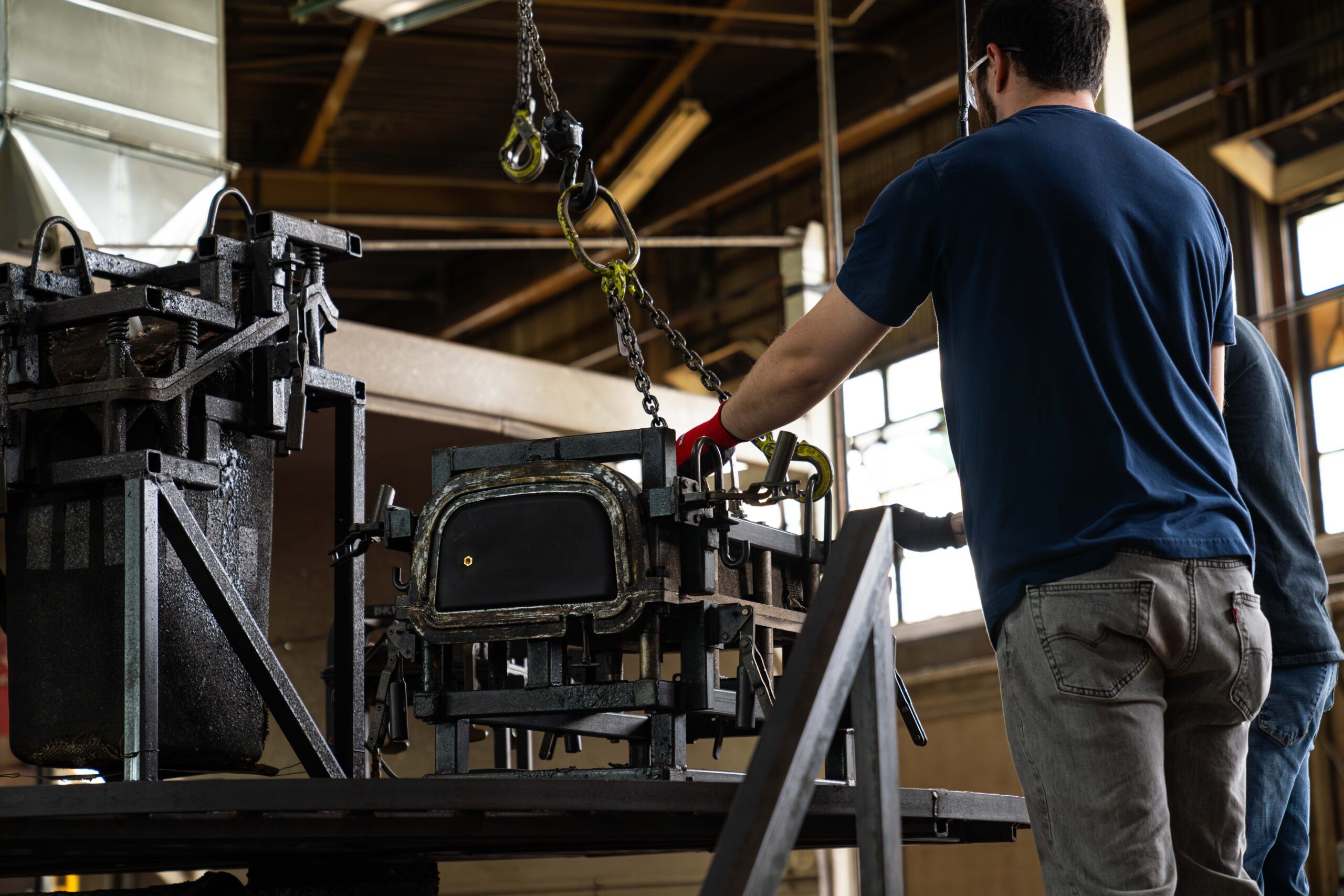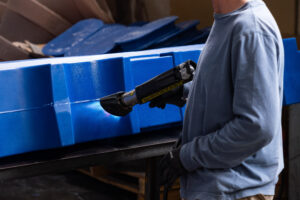From Concept to Reality: How Prototyping with Rotational Molding Works

Prototyping is a crucial phase in product development, providing manufacturers with the opportunity to test, refine, and perfect designs before committing to full-scale production. It is particularly critical for products that require specialized manufacturing techniques, such as rotational molding. By leveraging advanced prototyping methods, manufacturers can identify potential issues early, reduce the risk of costly mistakes, and ensure the final product meets both functional and aesthetic requirements.
CPI specializes in rotational molding, a versatile and cost-effective manufacturing process that creates durable, lightweight, and complex products. Our prototyping process allows us to fine-tune every aspect of a design, ensuring that when the product moves into full production, it is optimized for both performance and efficiency.
Why Prototyping is Crucial for Product Development
Prototyping allows manufacturers to simulate the real-world performance of a product before building large-scale production. It enables design teams to spot design flaws, identify potential production challenges, and test materials without incurring the costs and risks associated with full-scale manufacturing.
When prototyping with rotational molding, the stakes are especially high. Rotational molding involves the creation of hollow products from a variety of resins, making it ideal for items like storage tanks,
 containers, and custom enclosures. This manufacturing process allows for complex shapes and features that are not possible with other molding methods. Therefore, the precision and accuracy required during prototyping are essential to ensuring the end product performs as expected.
containers, and custom enclosures. This manufacturing process allows for complex shapes and features that are not possible with other molding methods. Therefore, the precision and accuracy required during prototyping are essential to ensuring the end product performs as expected.
At CPI, we combine decades of experience with state-of-the-art technology to refine every product before full production begins. Our prototyping process is designed not only to ensure product performance but also to deliver innovative solutions that meet the needs of our clients across various industries.
The Prototyping Process with Rotational Molding
1. Design & Engineering – The Foundation of Success
The prototyping journey begins with the design and engineering phase, where the concept of the product starts to take shape. This stage is critical because it sets the foundation for everything that follows. We use advanced 3D modeling software and CAD (Computer-Aided Design) drawings to develop a detailed visual representation of the product. These tools allow us to explore various design options, adjust, and ensure the product’s feasibility.
During this phase, we also focus on optimizing the design for rotational molding. Unlike other molding processes, rotational molding involves heating a hollow mold filled with powdered resin, then rotating the mold to evenly distribute the material, forming a seamless, uniform product. Because of this, design elements like wall thickness, structural integrity, and the overall geometry must be carefully considered. We work closely with our clients to ensure that the design aligns with both functional needs and manufacturing constraints, so the final product can be produced efficiently and cost-effectively.
2. Material Testing – Ensuring Durability and Performance
Choosing the right material is one of the most important decisions in the prototyping process. The materials used in rotational molding must not only meet the functional requirements of the product but also stand up to environmental conditions, wear, and tear. For example, products exposed to UV radiation, extreme temperatures, or harsh chemicals must be constructed from resins that can withstand these elements.
At CPI, we conduct extensive material testing to identify the most suitable resins for each project. We evaluate factors such as tensile strength, impact resistance, environmental resistance (e.g., UV and weathering), and thermal stability to ensure that the material selected will deliver optimal performance over the product’s lifespan. By testing various materials at this stage, we can eliminate those that may fail under certain conditions, reducing the risk of defects or premature failure in the final product.
We also consider sustainable materials when possible. With increasing demands for eco-friendly solutions, CPI continually explores innovative materials that offer both performance and environmental benefits, allowing our clients to meet sustainability goals without compromising quality.
3. Small-Batch Production – Testing in Real-World Conditions
Once the design and material selection have been finalized, the next step in the prototyping process is small-batch production. Unlike full-scale manufacturing, which requires larger production runs, small-batch production allows us to produce a limited number of prototypes that can be rigorously tested under real-world conditions.
This phase is vital for gathering data on the product’s performance and identifying any issues that might not have been apparent during the design and material selection phases. For example, small-batch production allows us to test the product’s structural integrity, ease of use, and functionality in the actual environment where it will be deployed.
Through these real-world tests, we can assess whether the product performs as expected, make any necessary adjustments, and identify areas for improvement. It’s not uncommon for design tweaks to be needed at this stage to ensure the product’s functionality is optimized before mass production begins.
4. Final Adjustments & Full Production – Perfecting the Product
Once the prototype has been validated through small-batch production and real-world testing, we enter the final phase: full-scale production. During this phase, we make any final adjustments to the product based on the feedback from small-batch testing. These refinements may include slight modifications to the mold, material choice, or overall design to further enhance performance and reduce production costs.
At CPI, we utilize cutting-edge rotational molding technology to produce products at scale. Our advanced molding machines ensure consistent quality across all units, maintaining the high standards we set during the prototyping phase. With a refined product and a streamlined production process, we can move from prototype to mass production efficiently, ensuring that our clients receive the highest-quality product on time and within budget.
The Benefits of Prototyping with Rotational Molding
Prototyping with rotational molding offers numerous advantages over other manufacturing methods, including:
- Cost Efficiency: By identifying potential issues early, prototyping helps avoid costly mistakes during full-scale production. The ability to test designs with small batches reduces the risk of large-scale failures and product recalls.
- Design Flexibility: Rotational molding allows for the creation of highly complex and custom shapes that may not be possible with other molding processes. Prototyping with rotational molding gives designers the freedom to test creative and functional concepts without limitations.
- Improved Product Performance: Prototyping allows manufacturers to refine designs and materials to ensure the product can withstand real-world conditions. Testing products under various scenarios ensures that the final product performs as expected, reducing the risk of failure after it reaches the market.
- Faster Time-to-Market: By moving through the prototyping phase quickly and efficiently, manufacturers can reduce the overall time it takes to bring a product to market. This fast turnaround is especially beneficial for industries where time-to-market is crucial.
Prototyping is an indispensable part of the product development process, particularly when using specialized manufacturing techniques like rotational molding. It minimizes risks, improves efficiency, and ensures that the final product meets both functional andaesthetic expectations. CPI’s commitment to excellence allows us to deliver high-quality, durable products that meet the unique needs of our clients across a variety of industries.
Whether you are developing a new product or refining an existing one, the prototyping phase is an essential step in ensuring success. With our expertise in rotational molding and our dedication to quality, CPI is your trusted partner in turning your concepts into reality.
